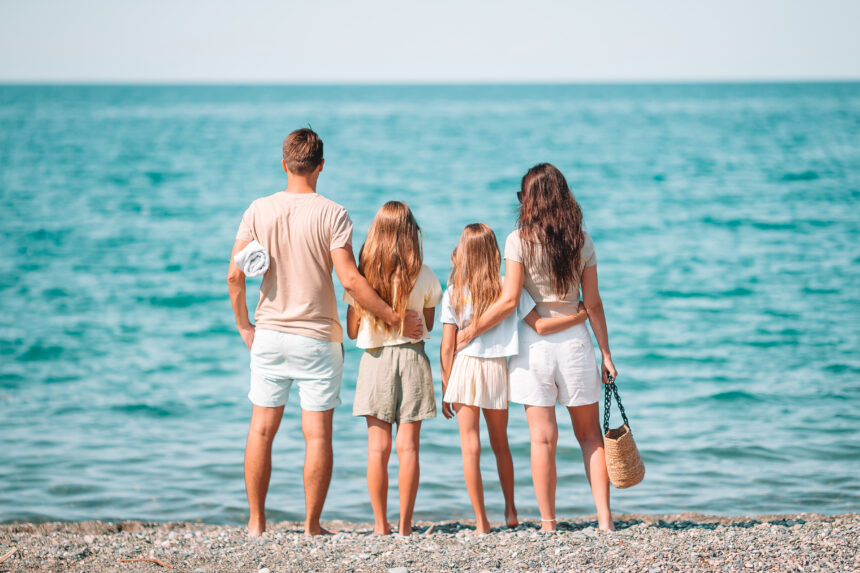Ways to Protect the Environment During a Trip to the Sea: Responsible Behavior
As the allure of the sea beckons travelers from all corners of the globe, it is crucial to remember that our actions can significantly impact marine ecosystems. With millions of people visiting coastal areas each year, responsible behavior is essential to ensure that these beautiful environments remain pristine for future generations. This article explores various ways to protect the environment during a trip to the sea, emphasizing responsible practices that every traveler can adopt.
Understanding the Impact of Tourism on Marine Ecosystems
Tourism can have both positive and negative effects on marine environments. While it can promote conservation efforts and provide economic benefits to local communities, it can also lead to pollution, habitat destruction, and wildlife disturbances. According to the United Nations World Tourism Organization (UNWTO), coastal tourism accounts for approximately 40% of global tourism, highlighting the need for sustainable practices.
1. Choose Eco-Friendly Accommodations
One of the first steps in ensuring a responsible trip to the sea is selecting accommodations that prioritize sustainability. Eco-friendly hotels and resorts often implement practices that minimize their environmental footprint. Here are some features to look for:
- Use of renewable energy sources, such as solar or wind power.
- Water conservation measures, including low-flow fixtures and rainwater harvesting.
- Waste reduction programs, such as recycling and composting.
- Support for local communities through fair trade practices.
For example, the Six Senses Laamu resort in the Maldives is renowned for its commitment to sustainability, featuring solar panels and a marine conservation program that protects local coral reefs.
2. Practice Responsible Waste Management
Waste management is a critical aspect of protecting marine environments. Tourists often contribute to litter and pollution, which can harm wildlife and degrade natural beauty. Here are some tips for responsible waste management:
- Always dispose of trash in designated bins and avoid littering.
- Bring reusable items, such as water bottles, bags, and utensils, to reduce single-use plastics.
- Participate in beach clean-up activities organized by local communities or NGOs.
According to a study by the Ocean Conservancy, over 8 million tons of plastic enter the oceans each year, posing a severe threat to marine life. By being mindful of waste, travelers can help mitigate this issue.
3. Respect Wildlife and Natural Habitats
When visiting coastal areas, it is essential to respect local wildlife and their habitats. Disturbing animals or their environments can have lasting negative effects. Here are some responsible behaviors to adopt:
- Observe wildlife from a distance and avoid feeding or touching them.
- Stay on designated paths and avoid trampling sensitive vegetation.
- Be cautious when engaging in water activities, such as snorkeling or diving, to avoid damaging coral reefs.
For instance, in the Galápagos Islands, strict regulations are in place to protect unique wildlife, and visitors are required to follow guidelines to minimize their impact on the ecosystem.
4. Support Local Conservation Efforts
Many coastal destinations have local organizations dedicated to preserving marine environments. Supporting these initiatives can make a significant difference. Here are ways to get involved:
- Donate to local conservation projects focused on marine life protection.
- Participate in guided eco-tours that educate visitors about the local ecosystem.
- Volunteer for beach clean-ups or habitat restoration projects.
For example, the Coral Triangle Initiative in Southeast Asia focuses on protecting marine biodiversity and involves local communities in conservation efforts, showcasing the power of collective action.
Conclusion: A Collective Responsibility
Protecting the environment during a trip to the sea is not just a personal responsibility; it is a collective one. By choosing eco-friendly accommodations, practicing responsible waste management, respecting wildlife, and supporting local conservation efforts, travelers can significantly reduce their impact on marine ecosystems. As tourism continues to grow, adopting these practices will ensure that our oceans remain vibrant and healthy for generations to come. Remember, every small action counts, and together, we can make a difference.
